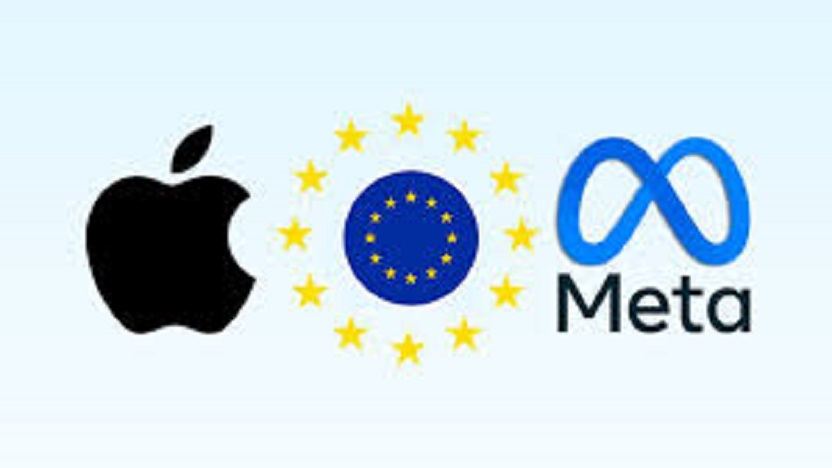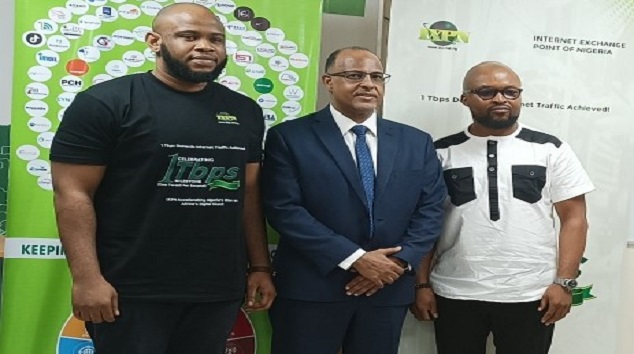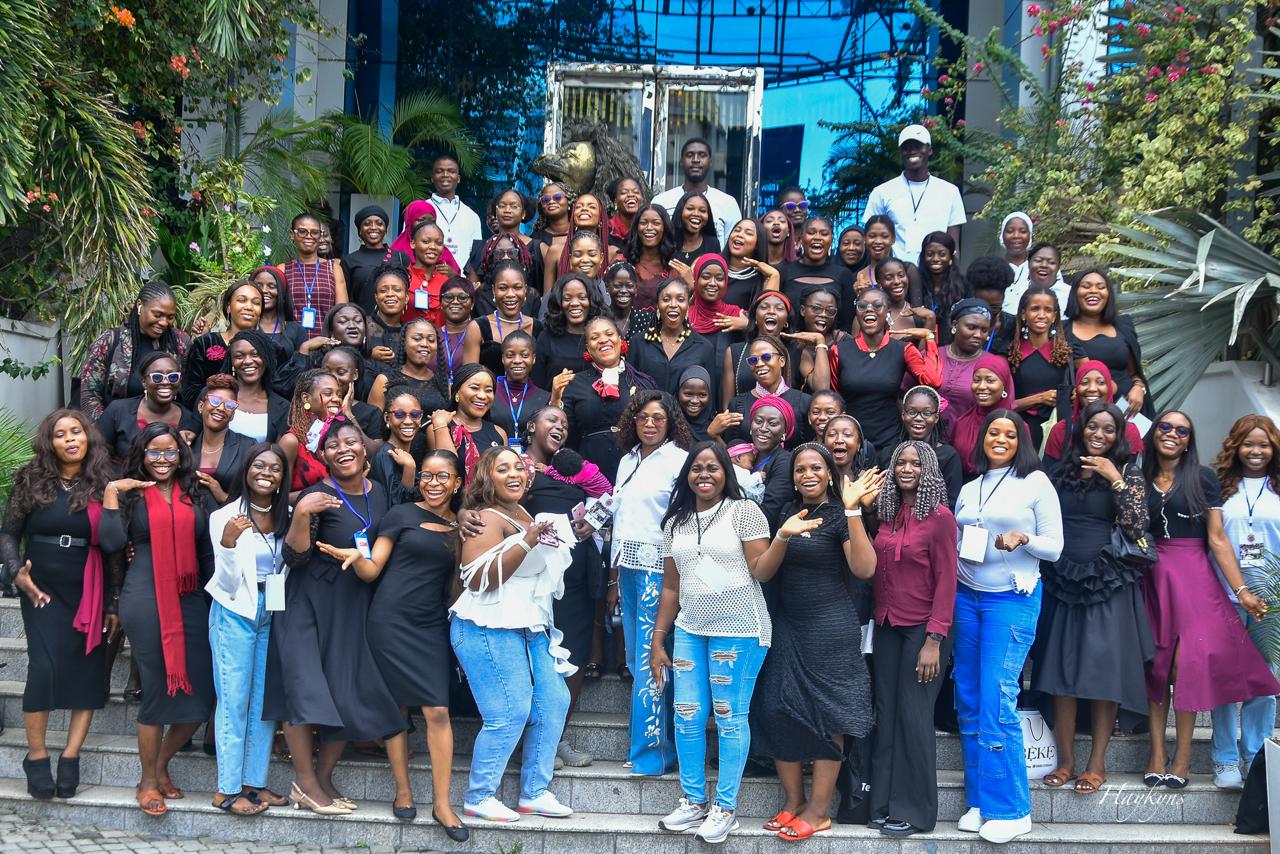Telecom
GSMA Hails Groundbreaking Spectrum Decisions @ WRC-23

The World Radiocommunication Conference 2023 (WRC-23) concluded this week with groundbreaking spectrum decisions that will shape the future of mobile communications.

Governments agreed on new mobile low-band spectrum (below 1 GHz) and mid-band spectrum in the 3.5 GHz and 6 GHz ranges. The GSMA, which represents mobile operators worldwide, welcomed these outcomes that will allow the mobile sector to plan the next wave of communications development through 5G-Advanced and beyond.
World Radiocommunication Conferences are held every four years under the auspices of the International Telecommunication Union (ITU), a specialised United Nations agency for information and communication technologies. These treaty conferences have the power to change international agreements on the use of radio spectrum.
For mobile, referred to at the ITU as International Mobile Technologies (IMT), WRCs serve an essential role in harmonising spectrum. Harmonsiation ensures economies of scale and facilitates planning for new spectrum bands to address data growth and deliver a bright future of sustainable connectivity.
“WRC-23 has provided a clear roadmap for mobile services to continue to evolve and expand for the benefit of billions across the globe,” said John Giusti, Chief Regulatory Officer at the GSMA.
“The GSMA believes that no-one should be left behind in the digital age and the decisions of WRC-23 will allow us to deliver a brighter future where mobile brings communities together, delivers industrial agility and provides economic growth. Implementation of the WRC-23 decisions will support global digital ambitions, deliver greater digital equality and unlock the full power of connectivity.”
WRC-23 took strong action to meet mobile data growth by identifying additional mid-band spectrum for mobile. Final harmonisation of the 3.5 GHz band (3.3-3.8 GHz) – the pioneer 5G band – was achieved across Europe, the Middle East and Africa (EMEA) as well as throughout the Americas. Notably, a new band – the 6 GHz band (6.425-7.125 GHz) – was identified for mobile in every ITU Region – EMEA, the Americas and the Asia Pacific.
Countries representing more than 60% of the world’s population asked to be included in the identification of this band for licensed mobile at WRC-23. The 6 GHz spectrum is now the harmonised home for the expansion of mobile capacity for 5G-Advanced and beyond.
WRC-23 also set out a path towards greater digital equality by defining mobile use of more low-band spectrum in the 470-694 MHz band in EMEA. Low bands can help expand capacity for the internet connectivity of rural communities as their signals reach over wide areas.
WRC-23’s new low-band mobile allocations will be an important tool to break down the barriers towards digital equality in the EMEA region and lower the urban/rural connectivity divide.
“Over half the world is connected to the mobile internet today,” said Luciana Camargos, Head of Spectrum at the GSMA. “But, as mobile connectivity develops, we need to ensure that we can deliver services for everyone. The great legacy of WRC-23 will be in allowing us to do so sustainably, affordably and in a way that delivers for the whole planet.
“We cannot stop here – WRC-23 is only the starting gun and now governments will need to act on its decisions, enabling new mobile technologies that embrace sustainability and unleashing the full potential of mobile to deliver a better tomorrow for our planet.”
The UAE, and its telecoms regulator TDRA, were recognised by delegates for hosting an unforgettable WRC, ensuring that ITU member states had the facilities needed to engage in the long and complex negotiations.
As a result of their leadership in chairing the conference, WRC-23 will be remembered for its balanced yet bold decisions that will deliver digital evolution and connect the world.
Mobile spectrum discussions at WRC-23 focussed on three core ranges:
- Low-band spectrum is ideal for covering wide areas with lower population density. This makes it an important natural resource that can deliver digital equality. The GSMA believes access to connectivity should not be dependent on where a person lives and progress on low-band spectrum will help ensure that digital equality is achieved between urban and rural areas. In low and middle-income countries, adults are 29% less likely to use the mobile internet if they live in a rural area compared to their urban counterparts. Increasing low-band capacity can help support better rural networks.
- City-wide capacity requires mid-band spectrum to deliver the main weight of connectivity requirements. The 3.5 GHz range is the birthplace of 5G and is assigned in over 80 countries already. The further harmonisation of the 3.5 GHz range at WRC-23 will allow more countries to take advantage of economies of scale in the mobile ecosystem and benefit from higher speeds provided by wide spectrum channels in this range.
- On average, 2 GHz of mid-spectrum spectrum per market will be needed by 2030 to meet the demand of citizens and businesses in cities around the globe. The 6 GHz band is the only remaining mid-band spectrum currently available to respond to the data traffic growth in the 5G-Advanced era. The WRC-23 decision to harmonise the 6 GHz band in every ITU Region is a pivotal milestone, bringing a population of billions of people into a harmonised 6 GHz mobile footprint. It also serves as a critical developmental trigger for manufacturers of the 6 GHz equipment ecosystem.
Telecom
EU Fines Apple and Meta €700m in Landmark Digital Markets Act Enforcement

European Commission has imposed landmark fines on tech giants Apple and Meta in the first enforcement actions under the Digital Markets Act (DMA), a new regulatory framework designed to enhance consumer choice and ensure fair competition in the digital economy.

Apple was fined €500 million (£428.3 million) for restricting app developers from guiding users to alternative purchasing options outside its App Store, a practice the commission said limited access to more affordable offers and stifled competition.
The commission has ordered Apple to amend its App Store policies by late June to comply with the DMA, warning that failure to do so could result in further daily penalties.
Meta, the parent company of Facebook and Instagram, was fined €200 million (£171.3 million) over its ‘pay or consent’ model, which required European Union users to either pay for an ad-free experience or consent to personalised advertising.
The commission found that this model failed to offer users a genuine choice and violated rules governing data processing and user consent. Meta’s revisions to this model, made in November 2024, are currently under review by the EU.
Both companies have pushed back against the commission’s decisions. Apple announced plans to appeal, stating that the ruling was unjust and detrimental to user privacy and security. “Today’s announcements are yet another example of the European Commission unfairly targeting Apple in a series of decisions that are bad for the privacy and security of our users, bad for products, and force us to give away our technology for free,” the company said.
Meta also criticised the EU’s approach, claiming that it imposes undue burdens on successful American companies while allowing competitors from China and Europe to operate under different standards. Joel Kaplan, Meta’s chief global affairs officer, said, “This isn’t just about a fine; the Commission forcing us to change our business model effectively imposes a multi-billion-dollar tariff on Meta while requiring us to offer an inferior service.”
The fines are part of a broader effort by the EU to clamp down on dominant digital platforms, known as ‘gatekeepers’, and ensure they do not abuse their market positions.
The commission has also concluded an investigation into Apple’s compliance with DMA rules on browsers and default apps, acknowledging changes that have opened up more space for competition.
However, Apple remains under scrutiny for its handling of alternative app marketplaces, which could attract additional penalties.
The enforcement measures may further strain transatlantic relations, with some in the United States, including former President Donald Trump’s administration, criticising the EU’s digital regulations as disproportionately targeting American firms.
Despite the pushback, the European Commission insists that the DMA is enforced impartially to safeguard consumer rights and foster a level playing field in the digital market.
Telecom
Nigeria Hits 1 Terabit Internet Traffic Milestone

IXPN, Nigeria’s leading Internet Exchange Point, is proud to announce a landmark achievement: crossing 1 Terabit per second (1Tbps) in aggregate peak domestic internet traffic for the first time.

This milestone signifies a major leap forward in developing Nigeria’s internet infrastructure and underscores the critical role of local internet infrastructure in driving economic growth, innovation, and connectivity for millions of Nigerians.
“This milestone is more than just a number. It’s a symbol of Nigeria’s digital maturity and our united strides towards becoming a tech-driven nation. By keeping local internet traffic within Nigeria, we reduce costs, improve speeds, and ensure our digital economy thrives with homegrown infrastructure.” said Muhammed Rudman the CEO of IXPN.
“Achieving 1 Tbps is a significant victory for Nigeria’s ICT ecosystem, a breakthrough for domestic internet traffic. It serves as a catalyst, enabling millions of Nigerians to enjoy faster, more affordable, and resilient internet connectivity.”

1 Terabit per second is a game-changer for Africa’s most populous country. To put it in perspective:
- Mega Video Calls: A speed of 1 Tbps can support over 1 million concurrent Zoom calls, allowing students, entrepreneurs, and professionals to connect and drive Nigeria’s digital revolution.
- Streaming Frenzy: With 1 Tbps, more than 200,000 people can stream HD Nollywood films or movies on Netflix simultaneously without any buffering or interruptions.
- Data Superpower: This speed enables the transfer of the entire contents of 50,000 smartphones—including photos, apps, and videos—in just one second.
For Nigeria, hitting this milestone means reducing reliance on international bandwidth, decreasing latency for local services, and strengthening our position as Africa’s digital heartbeat. This milestone is a testament to the power of collaboration, innovation, and the relentless pursuit of a faster, more connected Nigeria.
This accomplishment goes beyond technical advancements; it has significant economic implications. By encouraging local traffic exchange, IXPN reduces dependency on international bandwidth, leading to:
- Significant Cost Savings: By utilizing local data exchange, Nigerian businesses can save millions of dollars annually on international bandwidth fees.
- Enhanced Speed and Connectivity: With reduced latency, users experience smoother streaming, gaming, and real-time services, enhancing their overall online experience.
- Increased Resilience: Strengthening Nigeria’s internet infrastructure protects against global disruptions, ensuring consistent access to vital services such as healthcare and education.
- Improved Efficiency: Optimizes digital services like fintech, edtech, e-commerce, and e-health, propelling innovation and growth in these sectors.
Surveys conducted among IXPN members over the years have shown a growing percentage of local internet traffic in Nigeria. A recent report indicates that some connected members can localize or domesticate up to 70% of their internet traffic through IXPN.
“As more content providers, ISPs, banks, and public institutions localize their traffic through the IXP, end users benefit directly,” added Raphael Iloka (Marketing Manager). “We’re not just routing data — we’re building the foundation for Nigeria’s digital economy.”
The 1 Tbps peak highlights the remarkable impact of collaboration among all stakeholders. This milestone is a significant achievement not only for IXPN, but for the entire ICT ecosystem. IXPN deeply appreciates the vital contributions of all stakeholders involved.
To our Members and Partners: Your trust and participation have been essential to our growth. Together, we have established a hub where networks can interconnect, innovate, and thrive.
To the Government and Regulators: We express our sincere appreciation to the Nigerian Communications Commission (NCC) for all its support over the years and its vision of a digitally inclusive Nigeria.
To our Team: We extend our gratitude to our engineers, network administrators, and all other staff who work tirelessly behind the scenes to push boundaries.
To the Global Community: We are grateful to partner organizations like the Internet Society (ISOC). Your support and advocacy in domestic peering empower us all.
Reaching 1 Tbps is just the beginning. As data demands skyrocket with AI, IoT, 5G, and immersive technologies, IXPN is committed to staying ahead of the curve. Here’s how:
- Scaling Infrastructure: We are investing in advanced hardware and software to support multi-terabit capacities.
- Enhancing Resilience: We are strengthening our network to ensure uptime, security, and adaptability in an ever-changing digital landscape.
- Empowering Underserved Communities: We aim to expand our reach to rural areas, bridging the digital divide, and supporting agritech, edtech, and telehealth.
- Strengthening Africa’s Digital Sovereignty: Partnering with regional IXPs to keep Africa’s data on the continent.
Telecom
TD Africa’s TecHERdemy Empowers 400 Women to Lead in Tech

On April 17, 2025, the atmosphere at Yudala Heights was electric with pride, hope, and inspiration as TD Africa, the leading tech distribution company in Sub-Saharan Africa, celebrated the graduation of 400 young Nigerian women from its flagship TecHERdemy program.

Over the past six months, these incredible women immersed themselves in rigorous, hands-on training in Cybersecurity, Data Science, Artificial Intelligence, and Software Development. They are now confidently stepping into the tech world, ready to make their mark.
The event brought together top voices in the industry, including Dr. Leo Stan Ekeh, Chairman of the Zinox Group, who commended the graduates for their resilience and brilliance. In his keynote speech, he shared a hopeful vision for Africa’s future, calling these young women “the pioneers of a new, inclusive era of tech leadership on the continent.”
Mrs. Chioma Ekeh, CEO of TD Africa, also delivered a heartfelt message, urging the graduates to let their values guide them as they navigate their careers.
“Hold tightly to your values. Let integrity guide your work, let innovation fuel your dreams, and let your impact speak louder than your résumé,” she encouraged.
The ceremony was filled with emotion as graduates shared their personal stories of transformation. One of them, Yetunde Kayode, now a certified data scientist, summed it up beautifully: “This program changed my life. I’m walking away empowered, skilled, and deeply grateful to Mrs. Ekeh and the TecHERdemy team for believing in us.”
Fifteen exceptional participants were also honoured for their outstanding performance and leadership during the program, reminding everyone that excellence comes in many forms.
TecHERdemy, which launched in November 2024, was built with a simple but powerful mission: to equip young Nigerian women with globally relevant digital skills and open doors to a tech career. But what happened over those six months went beyond just skills; it sparked a movement.
This graduation wasn’t just the end of a program. It was the beginning of a brighter, more inclusive future for tech in Africa.

 Telecom2 days ago
Telecom2 days agoDigital Transformation Remains Africa’s Gateway to Economic Advancement – Adumike

 Telecom2 days ago
Telecom2 days agoPAFON 2.0: Experts Discuss Pathways to Boost Financial Inclusion in Nigeria

 General News2 days ago
General News2 days agoEFCC Clarifies SCUML Certificate Misuse amid CBEX Ponzi Scheme Scandal

 Telecom1 day ago
Telecom1 day agoMTN Nigeria Faces Class Action Lawsuit over Alleged Data Mismanagement

 E-Financial2 days ago
E-Financial2 days agoCBN, NGX Group Defend Economic Reforms at Nasdaq

 E-Financial1 day ago
E-Financial1 day agoFCMB Capital Markets Leads ₦11.85bn GLNG Bond for LNG Plant Expansion

 General News1 day ago
General News1 day agoFG to Introduce New Tax Credit Scheme to Replace Pioneer Status Incentive

 Telecom1 day ago
Telecom1 day agoNigeria Hits 1 Terabit Internet Traffic Milestone



























